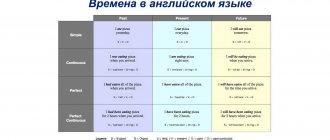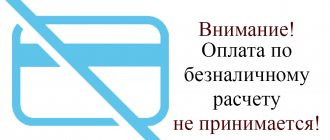What weaknesses can be written in a resume?
A resume is an important part of your job search success. Therefore, it must be compiled carefully and truthfully. However, avoid excessive self-criticism and carefully think through every word. Reflect only those weak qualities of yours that may turn out to be positive within a specific vacancy. This will help draw the attention of a potential employer to you.
Every person is not perfect, he has both positive and negative characteristics. If there is a point about weaknesses in a resume or application form, it cannot be left blank. But there is no need to list them all, mention 2 - 3 and this is enough for the employer to see that you are quite critical of yourself.
The most harmless of these human character traits are:
- increased responsibility for the results of one’s work and the team as a whole;
- excessive demands on oneself and others;
- shyness;
- pedantry;
- incredulity.
Within a certain vacancy, they can play a positive role. After all, a distrustful person will not cooperate with dubious clients without double-checking them thoroughly. Excessive demands and increased responsibility characterize a person as a leader. Pedantry will help those whose work involves numbers and reports.
Recommendations:
According to HR specialists, it is better not to indicate shortcomings in a resume, but to answer them during the interview. This way you will have the opportunity to maneuver, revealing how you overcome them. Also point out that having them does not in any way prevent you from being a great employee.
And remember, you need to be prepared for an interview even if you haven’t indicated them in your resume. Often they will have to be indicated in the application form. Therefore, you need to think through your weaknesses, formulate and answer them competently.
Here are a few examples of how you can answer during an interview:
1. “Not everyone likes my scrupulousness and meticulousness. But my profession is related to analytics, and this requires careful attention to detail. Therefore, I’d better double-check everything several times and be sure that the result is accurate and correct.”
2. “My body clock does not allow me to get up easily in the morning, so there are times when I am late for work. But by the evening I do not lose my ability to work and can stay late in the office and complete all assignments: current, urgent and additional.”
3. “Yes, I strive to become a good journalist, but often a large number of people become the reason that I become confused. To overcome his weak side, he enrolled in public speaking courses. This is a great opportunity to develop and become more self-confident.”
Weaknesses of a person in a resume: examples of 100 negative qualities
In the forms of the vast majority of recruiting agencies and in the questionnaires of applicants in the personnel departments of companies, they are asked to indicate their weaknesses. For what purpose is this being done, and isn’t it wiser to remain silent about such “cons”?
Practical psychology: why ask about shortcomings
The requirement to list negative character traits or personality weaknesses serves several purposes. This is a psychological trick of the recruiter, who expects to quickly and comprehensively analyze the characteristics of the candidate’s behavior, the properties of his psyche, human experience and communication skills.
The ability to advantageously reflect imperfections, the ability to critically evaluate oneself, the tendency to introspection and awareness of shortcomings - these are mandatory attributes of a mature personality, which is characterized by responsibility, learning ability and the art of cooperation. Any reasonable person understands: ideal people do not exist.
Someone's statement about the absence of shortcomings means an incredible phenomenon: the individual has reached the limit of his skills and does not consider further improvement possible.
An employee who is not ready to “grow” personally and professionally, or to learn new trends in the field of work competencies, will not attract the attention of an HR manager.
In addition, if the applicant does not see weaknesses or is embarrassed to openly admit them, a psychologically savvy manager may suspect inadequately low self-esteem or, on the contrary, extreme pride, unwillingness to compromise and a tendency towards authoritarian communication.
Detecting a candidate's integrity is low on a recruiter's list of goals. Anyone who thinks about this question will come to a clear conclusion: to reveal one’s soul to a stranger means to admit one’s naivety, passive submission, or narrow-mindedness.
You need to skillfully play up the topic of shortcomings, voicing only those that cannot harm your career and employer or can present the applicant in a favorable light.
Minus to plus, or turning bad character traits into advantages
Imagine a narcissistic egoist, try to understand his worldview. Any personal imperfection in the eyes of such a subject is seen as a funny little thing or an irreplaceable virtue.
I remember the Eastern postulate about the relationship between good and evil, good and bad, positive and negative. Everything in the world is relative. For example, such a character trait as stubbornness can turn into perseverance, let’s call hot temper emotionality, and so on. Selecting softer expressions in your resume will help smooth out negative characteristics, while leaving them in the category of shortcomings.
Some recommendations that will help you present your weaknesses as strengths:
- Search for a synonym whose meaning softens the perception of the property.
- Selecting neutral shortcomings that cannot lead to failure in the labor field:
- fear of travel, air travel and other phobias;
- inability to drive a car;
- computer helplessness – for professions involving manual labor;
- overweight;
- love for sweets;
- shopaholism;
- the tendency to make decisions and act according to one’s opinions;
- inability to adequately respond to rudeness (if the future profession is not related to customer service);
- distrust (or vice versa);
- overdeveloped empathy;
- meticulousness;
- exaggerated love of order;
- tendency to double-check facts;
- slowness in making decisions (if this does not harm the work);
- inability to accurately express one’s thoughts (provided that the applicant is not applying for the position of teacher, journalist, etc.);
- age and lack of experience (if these points are not important for the employer);
- tendency to get too close to people;
- inability to conflict and so on.
- Indication of character traits that in everyday life are considered rather a flaw, but turn out to be useful in work:
- increased anxiety;
- straightforwardness;
- reliability;
- excessive sociability;
- persistence;
- pickiness;
- workaholism;
- over-responsibility;
- slowness;
- tendency to self-criticism;
- hyperactivity.
https://youtu.be/qIfIQmvgE2g
Weaknesses related to profession (examples)
Any human weakness can become a strength in the workplace if you look at it from a different angle. But for each profession you need to highlight those aspects that will be advantageous.
For example , restlessness will be a positive trait for a sales manager.
Let's look at a few examples of indicating weaknesses in a resume or application form for certain positions.
Seller, manager
Salesperson is the most popular profession, for which a large number of vacancies usually open. The profession of a manager is associated with constant communications, negotiations with clients, and the conclusion of contracts. In the resume paragraph about weak character traits, you can indicate:
| Can | It is forbidden |
|
|
Head
Leadership in a team is associated with such personal qualities as:
| Can | It is forbidden |
|
|
Specialist
Knowledge of the specifics of work, the ability to quickly and smoothly complete assigned tasks, and avoid technical errors - all these traits distinguish a specialist in any field of activity. Therefore, an example of a weakness in a resume could be:
| Can | It is forbidden |
|
|
Accountant
The work of an accountant is related to numbers, calculations, and reports. There is no need to be sociable here, so focus on this when indicating your weaknesses:
| Can | It is forbidden |
|
|
Examples of personal qualities in a resume
To fill out the questionnaire, it is proposed to use examples of negative traits that can characterize the applicant for a vacancy from the best side, for example:
- Increased anxiety and distrust - characterizes the applicant to approach any task with full responsibility, to make transactions with trusted and decent clients.
- Slowness and scrupulousness characterize a person as a diligent worker who pays attention to every little detail, thanks to which the work he has started is brought to perfection.
- Demandingness and self-confidence are the qualities of a responsible person who knows how to organize effective activities in a company.
- Lack of perseverance and super activity - reflects the ability of the resume author to quickly complete assigned tasks, regardless of changes in the environment or other factors that interfere with work.
- Straightforwardness - characterizes the resume applicant as a person who knows how, if necessary, to carry out business negotiations, at which certain requirements will be clearly set for partners, with the ability to defend his point of view.
- Modesty - the applicant always thinks before expressing his opinion, due to which misunderstandings do not arise when communicating with clients or the team, without creating conflicts.
What weaknesses are not worth mentioning?
The basic rule for filling out this item in a resume is the number of specified traits (no more than three) and their combination with professional responsibilities. But there are aspects of human character that under no circumstances should be included in a resume.
A potential employer will probably not want to consider a resume where the applicant has indicated the following among his weaknesses:
- passivity, laziness and carelessness;
- I constantly fly in the clouds;
- not ready to make decisions;
- you cannot concentrate on completing the task at hand, you are often distracted;
- lack of punctuality;
- conflict;
- absent-mindedness;
- selfishness;
- amorousness;
- habit of lying.
We recommend that you familiarize yourself with examples of character strengths and weaknesses in a resume.
How to turn weaknesses into strengths on your resume
The shortcomings of the applicant for the position in the composed message can be presented with a certain cunning.
For example, present advantages in the form of disadvantages. Of course, when setting out weak and strong qualities, the resume author must approach it carefully, carefully weighing everything. Let us give a number of examples that will demonstrate how to make your shortcomings attractive to the head of the company. Having chosen the vacancy you like, you can describe your shortcomings in your resume as follows:
- … I have absolutely no skills at work (however, I graduated from a specialized educational institution and have a desire to gain experience from scratch) …
- … There is no specialty (however, there is work experience and a willingness to work in this profession) …
- ... There is no knowledge of specialized programs (however, there is a desire and readiness to study them in the near future) ...
- ... I am supporting a young child (however, there will be no more maternity leave, the grandparents will take care of the baby) ...
- ... The level of knowledge of a particular language is insufficient (however, the goal is to study it completely in the shortest possible time).
It is definitely not advisable for a job applicant to state your negative characteristics in the application form.
Strengths in your resume
To display the strengths noted in the resume, in fact, one can call the work experience of the author of the letter.
This also includes education, developments and knowledge. During the interview, it can be noted that thanks to the listed qualities, the applicant is the best candidate for the proposed job. Strengths can also be noted in the questionnaire. It is recommended to get away from tired phrases: – “communication skills”, “punctuality”, “responsibility”, “performance” and “dutifulness”. You need to express your qualities in the simplest words. For example, “... I freely get along with strangers...”, “... I take a responsible approach to completing tasks...”, “... I always complete the work on time, with the appropriate quality...”.
Below are recommended words that characterize the applicant's strengths:
- powerful thinking;
- learning ability;
- discipline;
- professionalism;
- a desire to work;
- responsibility;
- hard work;
- activity;
- self confidence;
- patience;
- determination.
Persons applying for a leadership position may note the following characteristic features:
- work to achieve the planned result;
- showing activity and taking initiative;
- ability to identify new prospects for development;
- ability to persuade;
- presence of leadership traits, willingness to be responsible for any results and willingness to take risks.
- confidence in one's abilities, courage, perseverance;
- The desire to develop one’s abilities, the desire for self-development.
Applicants often note the following characteristic features in their application forms:
- honesty;
- courage;
- justice;
- responsiveness;
- reliability.
Features of writing a resume
On the one hand, writing a few words about yourself is a simple task and does not require special knowledge and skills. However, as practice shows, those who adhere to this point of view are often refused employment. Therefore, the more reputable the company you want to work for, the more important it is to write your resume correctly.
The length of the resume does not allow for the presentation of a large amount of information. It usually fits on 1-2 computer sheets. Therefore, it is especially important to briefly present the necessary information that will highlight your individuality and attract the attention of the HR specialist. When writing a text, weigh each word and present your weaknesses correctly.
For example, if you are worried about your belonging to a certain age category, start by listing your professional qualities or work experience. Move your date of birth information to the end of your resume. Or if your future job involves frequent business trips, and you have a small child growing up, be sure to indicate that you will be able to leave him in the care of relatives or a nanny.
To correctly reflect your weaknesses in your resume, adopt a few basic rules.
- Pay special attention to the style of presentation of information. The text must be written clearly and understandably. If during an interview you can convey information in different ways, then what is written will be perceived unambiguously.
- Never ignore the column in which you need to indicate your weaknesses and character traits. This can lead to you either being classified as insecure and complex people, or being considered a person with overly high self-esteem.
- Don't be afraid to be honest. A truthful reflection of information, especially regarding your weaknesses, indicates how self-critical you are and adequately assess your own strengths and weaknesses.
How to voice weaknesses in an interview?
Hello again, dear friend!
In the previous article, we discussed how to present your benefits. Today is the turn of shortcomings. How to voice your weaknesses in an interview?
Why do we need weaknesses?
1. They are important to the employer
The employer sleeps and sees how you can be controlled. To do this, you need to know your shortcomings and weaknesses.
In addition, weaknesses can be pointed out when the opportunity arises. Well, so that the employee does not “soar” inadvertently. )
You don't have to strive for perfection. No one expects the perfect candidate.
Gone are the days when we listened with open mouths to the pathos of supermen in shiny, impenetrable armor. Today this will cause a rather ironic smile. “Another nightingale, yep...”
The interlocutor would like to evaluate your maturity and the adequacy of your self-esteem. Understanding your weaknesses and willingness to work with them.
However, the confession of an inveterate slacker is also not an option.
2. Weaknesses are important to you.
Weaknesses are an integral part of personality, just like strengths and any others. They are as unique as your personality.
It is clear that we are not ready to discuss some of our personalities under any circumstances. But some parties, even if we consider them weak, may well even inspire trust. It is important to present them correctly.
You should not start a conversation about your weaknesses yourself . It is possible that you will not be asked about this. And yet, the question of weaknesses is considered typical and occurs with enviable regularity.
Hence the conclusion: you should prepare an answer to it in advance so as not to roll your eyes at the ceiling when asked.
Your humble servant has heard a variety of different versions of answers from candidates, more than a dozen, and maybe hundreds. Therefore, I decided to classify the answer options into three groups. Just like in this article.
Options for “unimportant” answers
What not to talk about:
- About those weaknesses that will not affect your work in the best way.
- Qualities that do not meet the expectations for a specific position. A statement, for example, from an accountant: “I am very ambitious,” may be perceived without any enthusiasm.
- It’s unlikely that anyone is expecting you to confess about your addiction to computer games and the like. You don't need too personal information either.
- An answer like “Weaknesses? I don’t even know, there don’t seem to be any…” and it looks completely stupid. Or you are hiding something.
I don’t recommend trying to pass off disadvantages as advantages.
, as some “experts” recommend.
Example:
“They say that I am overly scrupulous, I check every little thing.” - a candidate for the position of auditor.
“They say I’m very sociable, too much.” - PR manager
A clumsy attempt to present pseudo-cons as advantages looks very clumsy and is clearly prepared in advance.
Acceptable answers.
“I haven’t fully mastered it yet...”
One possible answer is to say that you do not yet have enough experience or knowledge in some secondary functions.
Example:
“I understand that outsourcing providers can be involved in warehouse work. But so far it has not been possible to work out this method of organizing work in practice. I was not satisfied with the providers’ proposals.”
You are honest and ready to change.
“I know my weak side and I’m working on it...”
Examples:
“It happens that I am late. Bad habit. For some time now I have been coming to the office 10-15 minutes before work. Same with meetings. If it is scheduled at 15.00, then for me it is 14.50. That’s what I write on my calendar.”
Or: “Unfortunately, there are mistakes in reports. I try to carefully check all the details.”
You recognize the problem and work on it.
Adequate answers
Having weaknesses is normal. Another way to work with them is compensation.
As you know: action generates reaction. You can fight your shortcomings. Just let’s remember: “Such a struggle for peace began that no stone was left unturned.” 
Your struggle with yourself will not always be successful. Meanwhile, you continue to create problems for others and work colleagues.
Why not do this: simply compensate for your weaknesses so as not to fall victim in a bloody battle with them.
1. Example: the author of these lines does not have an outstanding, not very good memory for various minor, but necessary matters...
I tried to somehow fight this. But, alas...
Then I decided: there’s a fight on the side, I’ll just record it. Notes compensate for my forgetfulness . It turns out there is a benefit to this that I had not seen before. When you write down, your head is freed from constantly holding any secondary information in it.
2. Let's remember the example with the report that was discussed just above . “I often make mistakes in reports.”
You can do it differently:
“I instruct my employee or colleague to look with an open mind, and he easily finds flaws that I did not see.”
Sometimes weaknesses can be played up with humor. With the same memory for example:
“I forget information received in a conversation with a person. However, this means that I won’t be able to leak it to anyone.
Another example:
One of my colleagues is a person who can only be well motivated by the “ass” where he is stuck. The most powerful motivator is triggered - fear. Fear of getting stuck up to your ears and irrevocably.
He understands this peculiarity of his and does not hide it.
Another thing is important : at this moment he is able to generate incredibly powerful energy. Energy mixed with fear pulls him out of the quagmire. I even gave him a nickname: Baron Munchasen. If you remember, the baron pulled himself out of the swamp by his hair.)
So, the answer options from points two and three are quite suitable. Depending on your preferences and the context of the meeting.
A smart leader and a thinking HR manager will understand you.
I also recommend reading the article What not to say at an interview?
Thank you for your interest in the article.
If you found it useful, please do the following:
- Share with your friends by clicking on the social media buttons.
- Write a comment (at the bottom of the page)
- Subscribe to blog updates (form under the social media buttons) and receive articles on topics of your choice
to your email.
Have a nice day!
This article is worth sharing.
Exercises to identify strengths and weaknesses
Sometimes it is very difficult to determine your personal qualities on your own. Especially if you are nervous or writing a resume for the first time. To eliminate worries and unpleasant moments, make a list of your qualities before the interview. And we will help you how to do this. So:
- Conduct an analysis of your character. To do this, remember what you do well and what you do poorly. And also, what qualities are needed to complete these tasks. Write everything down so you don't forget.
- If you cannot independently assess your qualities, ask your loved ones and friends whom you trust to do so. They will help you find your strengths and point out your weaknesses.
- Assess your surroundings. Determine what positive and negative character traits your friends have. Compare with yourself: what you have and what you don’t have. Write it down.
- Next, evaluate the qualities you indicated. You need to select which of this list are your strengths and which are your weaknesses. Let’s say at university you couldn’t give a presentation in front of an audience. So your weakness is your fear of the public. But you made this report, which means you are a diligent, attentive, responsible and hardworking person.
- Next, from the selected qualities, you need to choose your personal and professional qualities.
- Determine what qualities an applicant for your vacancy should have. Write them down.
- Now make a selection of your personal and professional qualities in accordance with the qualities that an applicant for the desired position should have. Write it down.
- After the work has been done, identify your shortcomings and how you can overcome them.
Useful articles:
Present your strengths as weaknesses
When filling out a resume, you must take into account the vacancy for which the applicant is applying.
After all, the strong characteristics of an applicant, which can positively influence labor productivity in any industry, can provide the opposite effect when occupying another vacancy. For example, leaders who can achieve results by filling the vacancy of a management manager may encounter various difficulties when working as a team that have a negative impact on labor productivity.
Psychologists recommend that when describing shortcomings, note such weak qualities that in future work can turn into strengths. An example of such shortcomings set out in the message are the following:
- pedantry;
- super activity;
- scrupulousness.
And such qualities as: – demanding of oneself and the environment; emotionality; perfectionism can be turned into virtues. The listed traits can be used to advantage, since, ultimately, they show that the applicant treats obligations with due responsibility.
You can also reformulate your weak qualities, softening their meaning. For example, pedantry can be disguised with the phrase: “... I like to delve into the very essence and achieve excellence in my work...”.
Examples of personal qualities in a resume
To get a decent job, you need to send the employer a positive questionnaire and reference.
When noting your strengths in the questionnaire, you must objectively present your assessment of yourself in a professional manner and note the best features in order to convince your superiors of your need. An example of demonstrating the strengths of an applicant is the following list:
- honesty;
- determination;
- a sense of humor, which suggests a sign of intelligence;
- mobility;
- ability to persuade;
- ability to collaborate in a team;
- self confidence;
- creative thinking;
- desire for professionalism;
- stress resistance;
- ability to make quick decisions;
- scrupulousness;
- self-criticism;
- justice;
- independence;
- responsibility;
- Work for results;
- organizational qualities;
- optimism;
- no conflict;
- communication skills;
- creativity;
- Performance;
- ambition;
- analytical qualities;
- accuracy;
- and many more positive qualities.
It is also necessary to keep in mind that when indicating your business traits, described in one sentence, for example, “... Seven years of work activity Ch. accountant...", one must ensure that business and personal traits are not contradictory.
Mention of weaknesses
Every person has weaknesses, and the recruiter knows this very well. When describing negative qualities in an interview, it is advisable to remain honest. You should not tell anything that could become an obstacle to obtaining the coveted position. When naming disadvantages, you should compensate them with advantages. In other words, point out shortcomings during the interview so that they demonstrate positive aspects, that is, do not interfere with obtaining the desired position.
There are several possible disadvantages.
Disadvantage = advantage
We are talking about a negative quality that can easily be turned into a virtue. A great solution would be to make a statement like the example: “I am a workaholic.” This expression implies that a person devotes a lot of time to work. His relatives scold him for constant business trips and absence from home, but for a boss, a person with a desire to work day and night is a great find.
Easily removable shortcomings
It is recommended to voice those shortcomings during the interview that can be eliminated in the near future. This may be excessive pedantry. In life this does not interfere at all, but in the team there will be people who think differently. To avoid conflict situations, you can reconsider your attitude.
Possible interview questions
Example of a lesson learned
A recruiter will certainly appreciate it if a candidate for a position talks about a situation from which he was able to learn a lesson. That is, there is the fact of a mistake being made (the negative side), but there is a successful resolution to it. This may directly indicate that the person is learning from his mistakes and will not repeat them in the future.
Lack of unimportant skill
For each position, the employer makes a list of specific skills that a potential employee must have. When naming your negative sides, it is worth mentioning one of these qualities, but highlighting the least influential one from the entire list. For a future programmer, impeccable mastery of public speaking is unlikely to be of paramount importance. Do not talk about a shortcoming that can directly affect work productivity.
If a person is applying for the position of HR manager, then the inability to speak in front of the public will directly affect the recruiter’s decision not in his favor.
Deviation from the question
The recruiter may be interested in what shortcomings the potential employee will name. If you want to have the most frank conversation possible, you should answer directly and honestly, naming the positive and negative aspects of the interview. It’s also worth understanding and understanding how the interviewer will react to this. There are those who will take you on the team just for your frankness, but some will take it for weakness. After completing the list, it is advisable to ask whether there is a need to dwell on any of the points in more detail. Such a phrase will allow you to adapt all answers to comments, if any arise. During an interview, a potential employee must be able to present himself correctly. However, the applicant is not an actor playing for the audience. Both sides need a conversation. Tactics will make the conversation livelier; it will not be a conversation between one person, but an exciting conversation, an acquaintance between two people looking closely at each other.
You need to let the employer know that you have a desire to work on your mistakes. It is extremely important to feel inner confidence, to be convincing and honest. Then you will be able to make the right impression on the employer.
If the recruiter does not ask anything about shortcomings or achievements, you should not start a conversation in this direction on your own initiative. If asked, you should answer without delay. The main thing is to keep it short and to the point. There is no need to go into lengthy reflections on this matter.
It is necessary to prepare for the interview in advance. Not a single question asked by a recruiter should surprise or embarrass you. The employer will ask a lot of questions, including being interested in your strengths and weaknesses. There is no need to be embarrassed to answer these questions. You should respond promptly and convincingly. Everyone has good and bad sides, even the most talented and successful leader.
Important nuances
Honesty is good. However, some negative features are still not worth pointing out. Under no circumstances write that you like to be lazy, are afraid to take responsibility, or are unable to make decisions, are unpunctual, are often distracted, etc. There is no need to get too carried away when listing your weaknesses. It is enough to name 2-3 negative qualities. Do not use streamlined language and do not indicate features that will run counter to the requirements for the position.
Remember: don't be afraid to list your weaknesses on your resume. The main thing is to do it competently and thoughtfully. And at the same time, do not hesitate to remain as you are, with all your advantages and disadvantages.








